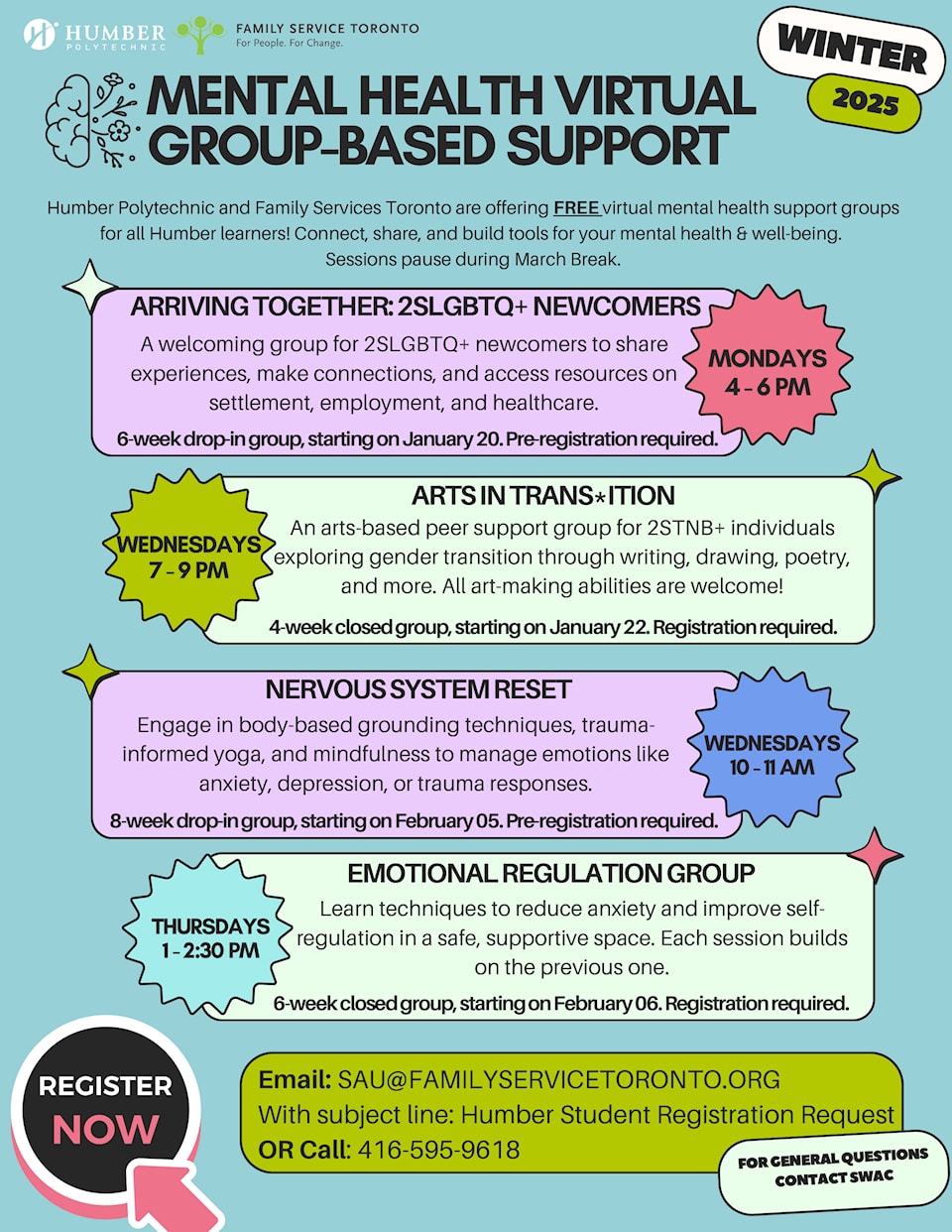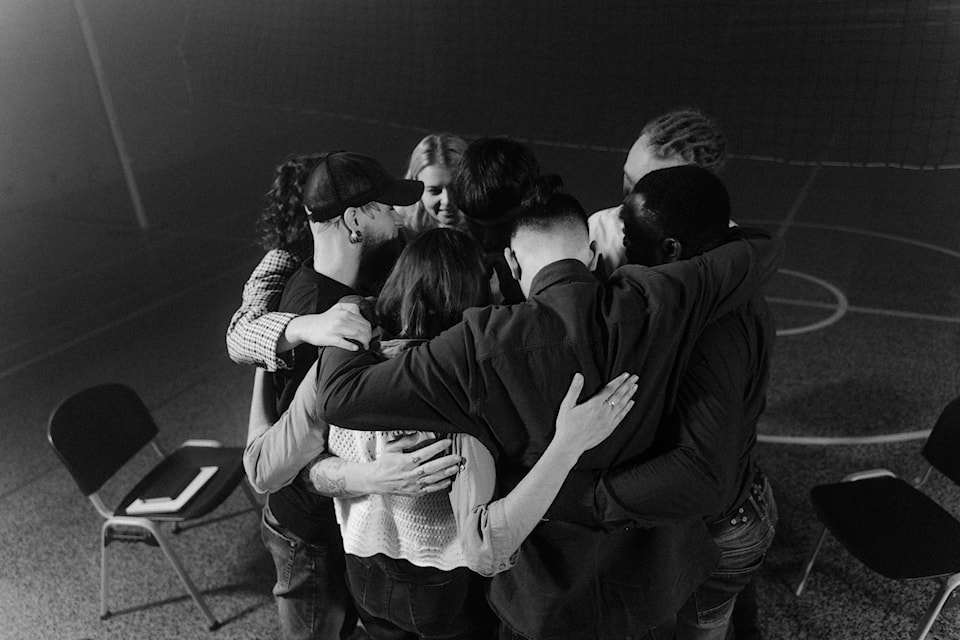Humber Polytechnic is collaborating with Family Service Toronto bringing virtual group-based mental health support to students during the winter 2025 semester with the first support group beginning Jan. 20.
Gabriela Yepez, associate director for counselling and mental health at Humber said this is the first time they are offering groups to students in partnership with a mental health community organization.
“In our service area, we notice that at the beginning of a new semester, students often experience multiple stressors such as academic pressures, adjusting to new schedules and balancing multiple responsibilities,” Yepez said.
“The groups are designed to offer our learners a supportive space to connect, share experiences and develop valuable tools," she said. "For instance, the group Nervous System Reset focuses on teaching grounding techniques to help learners effectively manage emotions such as anxiety and depression.
"The Emotional Regulation group teaches folks techniques to reduce anxiety and improve self-regulation,” Yepez said.

Brian Porter, communications and special projects director at Family Service Toronto, said the organization has four different areas of work, one being mental health which is where this program fits into the collaboration with Humber.
“We do a lot of work around gender-based violence. We have a violence against women program." Porter said. "We work with a lot of different individuals and families that are going through that kind of issue and then we have a large group of staff who work in the developmental services sector.”
He said they also work around public policy and poverty, all of these different areas being huge contributors to mental health.
Alexander Mannara, a Humber Marketing student, said he is excited for this collaboration to come to Humber.
“I believe mental health coming to Humber is a huge approach and it’s different. A lot of schools are opening up their minds to it now but I like how Humber’s kind of bringing in more to a bigger environment, to more people,” Mannara said.
“If the right person feels comfortable opening up, I think it is 100 per cent beneficial,” he said.
Taryn Zeger, registered psychotherapist, said this time of year is particularly challenging for students, as they face seasonal affective disorder, heightened anxiety about academic performance, relationship-building and financial stress from housing, tuition and textbook costs.
“Cultivating a sense of community and building relationships is a huge component when overcoming symptoms of anxiety or depression. I think we’re all so focused on our regular day-to-day routines so adults and students can feel isolated at times,” Zeger said.

“These groups [Humber is offering] will be a great way to bring students together and support them as the new semester begins, but also throughout the semester,” she said.
Philip Robb, a Humber Radio Broadcasting student, said this initiative would be beneficial to students, especially after the holidays.
“I think some people are going to be going through a lot with their courses and at home. It’ll give them some more people to talk to during a hard time with school,” he said.
Zeger said despite the benefits of these groups, the stigma around mental health and support groups continues, with many viewing them as places for those in crisis, discouraging students from joining.
“They may feel that they don’t need it or it’s not for them because of the stigma but also just the fact that some people may be less willing to share in a group setting as opposed to a one-on-one setting,” she said.
Zeger said encouraging students to sign up in advance is great but having some flexibility if students need some support in a short time frame for the support groups that aren’t drop-in may increase how many students take part in these support groups.
Kaylee Robinson, registered psychotherapist (qualifying), said Humber’s group support initiatives will be great in helping students navigate the transition to independence and manage associated anxiety.
“There’s a mix here too. You’ve got a closed group, which I think is also important to offer because there’s an increased vulnerability for folks that are going to want to participate, especially for this topic, this arts and transition one,” Robinson said.

“You really want to kind of vet who’s going to come into that group. You don’t want that to be like in a drop-in setting because you really want to protect the individuals that are being so vulnerable there,” she said.
However, Robinson emphasized how some neurodivergent folks may have challenges in groups like this with focus and attention in a virtual setting which may create a barrier.
Until May, she is offering therapy at a reduced price for students to also help them navigate this tough winter semester and life in general.


.png;w=120;h=80;mode=crop)
